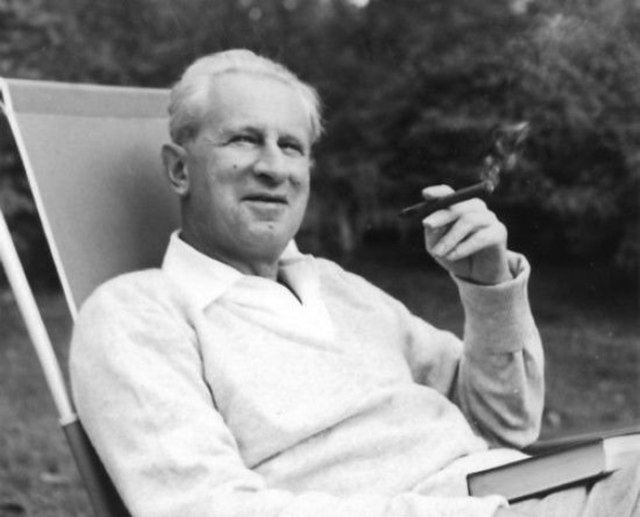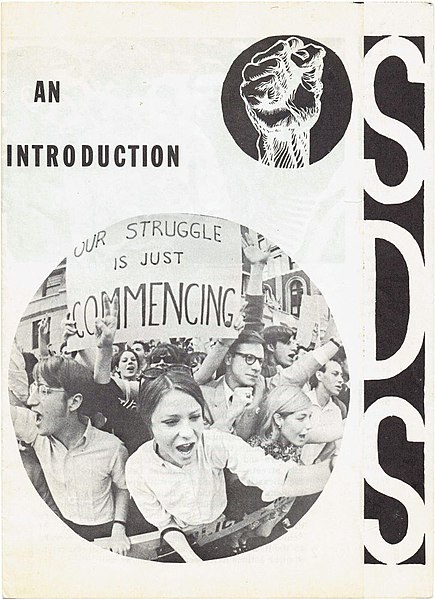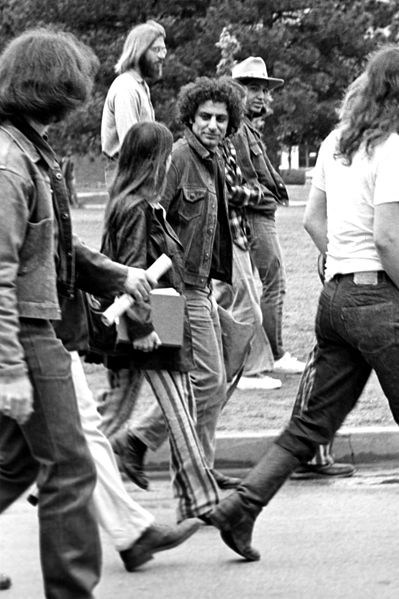The New Left was a broad political movement that emerged from the counterculture of the 1960s and continued through the 1970s. It consisted of activists in the Western world who campaigned for a broad range of social issues such as feminism, gay rights, drug policy reforms and the rejection of traditional family values, social order, and gender roles. The New Left differs from the traditional left in that it tended to acknowledge the struggle for various forms of social justice, whereas previous movements prioritized explicitly economic goals. However, many have used the term "New Left" to describe an evolution, continuation, and revitalization of traditional leftist goals.
Herbert Marcuse, associated with the Frankfurt School of critical theory, is celebrated as the "Father of the New Left"
A 1966 Students for a Democratic Society pamphlet
Abbie Hoffman, leader of the countercultural protest group the Yippies
A demonstrator offers a flower to military police at an anti-Vietnam War protest in Arlington, Virginia, 21 October 1967
Marxism is a political philosophy and method of socioeconomic analysis. It uses a materialist interpretation of historical development, better known as "historical materialism," to understand class relations and social conflict. It also uses a dialectical perspective to view social transformation. Marxism originates from the works of 19th-century German philosophers Karl Marx and Friedrich Engels. Marxism has developed over time into various branches and schools of thought, As a result, there is no single, definitive Marxist theory. Marxism has had a profound impact in shaping the modern world, with various left-wing and far-left political movements taking inspiration from it in varying local contexts.
Karl Marx in 1875
Friedrich Engels in 1877
The "Pyramid of Capitalist System" cartoon made by the Industrial Workers of the World in 1911 criticising capitalism and social stratification.
Left-wing protester wielding a red flag with a raised fist, both symbols of revolutionary socialism








